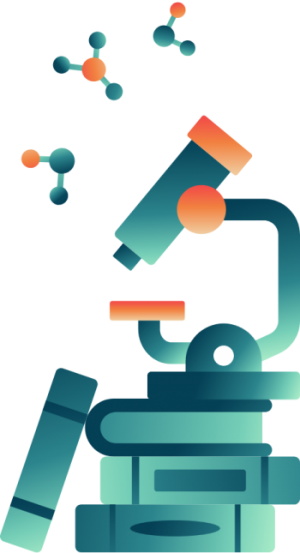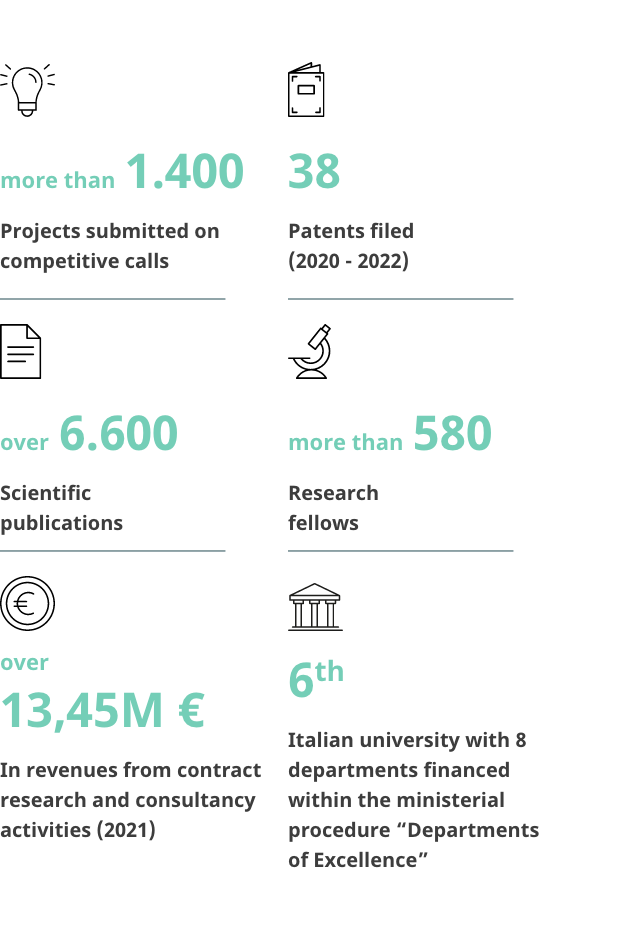

The City of Science and the Environment is the new “University branch for Sustainability” at the University of Turin.
It will be home to the Department of Chemistry and the Department of Life Sciences and Systems Biology, which, together with the adjacent complex that already houses the Department of Agricultural, Forest and Food Sciences and the Department of Veterinary Sciences, will work together to formulate a new model for metropolitan university campuses.
The four on-campus departments will be flanked and supported by the activities of UNITO’s 23 other departments, thus consolidating the very connections and synergies that characterise our University, while guaranteeing the multidisciplinarity and interactivity of the relationships between researchers, teachers and businesses.
In this way, the full capabilities of UNITO research will be accessible to each and every project that arises within the Butterfly Area!


 The Department of Chemistry
The Department of Chemistry
The Department of Chemistry is the bearer of fundamental scientific knowledge, ranging from the role of chemistry in environmental phenomena, the synthesis of biologically active organic molecules, the development of new materials for the Green Economy, to the investigation and creation of materials, and environmental and biological matrices for potential biomedical applications.
The Faculty of Sciences at the University of Turin was founded in 1848.
Work on the construction of the Scientific Institutes began in 1886 in via Pietro Giuria and, after a keen hunt for funding, the Institute of Chemistry was delivered in 1894, but only in 1900 were the interior renovations completed and activities started.
The Department will be transferred to Grugliasco and the City of Science and the Environment in 2024/2025.
The Department of Chemistry was named a “Department of Excellence” by ANVUR (the Italian National Agency for the Evaluation of the University and Research Systems) in December 2022.
At the end of 2022, ANVUR published the list of the winning departments and UNITO was confirmed as one of the best Universities in Italy.
Of the 180 Departments of Excellence, in all of Italy, that were awarded nationwide recognition and funding, for the 5-year period 2023/2027, the University of Turin can boast of eight, including Chemistry.
Find out more at: www.chimica.unito.it

The Department of Life Sciences and Systems Biology in Turin performs research in all of the fields that intersect biology, the environment and biotechnology.
The Department is spread over four sites in Turin, with this layout reflecting the transversal nature of biology today, which, particularly in Turin, has grown from a core of traditional naturalistic knowledge into now launching itself towards the very scientific base of modern medicine via Hygiene, Human Anatomy, Pathology, Pharmacology, Microbiology, Biotechnology and Agricultural Science.
Facilities of great scientific and public importance are associated with this department, including the Botanical Garden, which is part of the Musei Torinesi circuit (Turin Museums), the Mycotheca Universitatis Taurinensis (MUT), which is one of the most significant banks of fungal biodiversity in Italy and is of great value from the systematic, ecological and application points of view, the Herbarium of the University of Turin, and the Anthropological and Ethnographic Museum. Lastly, there is a high-quality Library, operated over two sites, where users can access both a high number of current subscriptions and the Library’s antique collection.
Find out more at: www.dbios.unito.it

The Department of Agricultural, Forest and Food Sciences hosts studies and research on the production and transformation of plants and animals, and on the relationships between these activities and their local territories and the environment.
The Department studies agricultural and forest ecosystems as well as agrifood-production chains and their biological, productive, ecological, technological, engineering and management aspects, all through a lens of economic and environmental perspectives, while also making use of a biotechnological approach.
The multidisciplinary approach of the Department is not simply a result of the complexity of the productive and transformative processes studied, but is also seen as added value that can enhance the potential of each individual field.
The Department was transferred to Grugliasco in 1996, and will join the newly arrived departments at the City of Science and the Environment.
Thanks to the “La qualità globale nel sistema agroalimentare” (global quality in agricultural systems) project, the Department was awarded, in 2018, a five-year funding plan by the Italian Ministry for Universities and Research (MIUR) for the promotion of innovation and research. This award was granted to university departments that distinguished themselves with the high-quality of their research as well as their scientific, organisational and teaching project-development capabilities.
Find out more at: www.disafa.unito.it

The Piedmontese Veterinary School was founded in 1769 at the behest of King Charles Emanuel III who had sent four surgeons to Lyon to study at the school that had existed there since 1762.
In 1793, the school was initially transferred to the Mandria, close to Chivasso, and then, in 1800 during the rule of the France over Piedmont, the school was transferred again, but this time to the Valentino Castle in Turin.
The Faculty of Veterinary Medicine was established in 1934, and integrated into the University of Turin.
The Faculty moved to Grugliasco between 1999 and 2001.
The Department was visited by the EAEVE Committee in November 1999 and was definitively approved as a member in 2002.
The research activity of the Department of Veterinary Sciences covers a wide range of veterinary-science research projects. The Department’s research projects yield new knowledge, both in basic and applied research, on the health of livestock, pets and wild animals, food security and comparative medicine.
The Department also cultivates national and international collaborations with important universities and research centres, and holds numerous collaboration agreements with public and private bodies in the local area, and thus acts as a technological innovation hub for local companies.
It was awarded “Department of Excellence” funding for five years (2018-2022) as part of the Italian University Departments of Excellence list.
Find out more at: www.veterinaria.unito.it